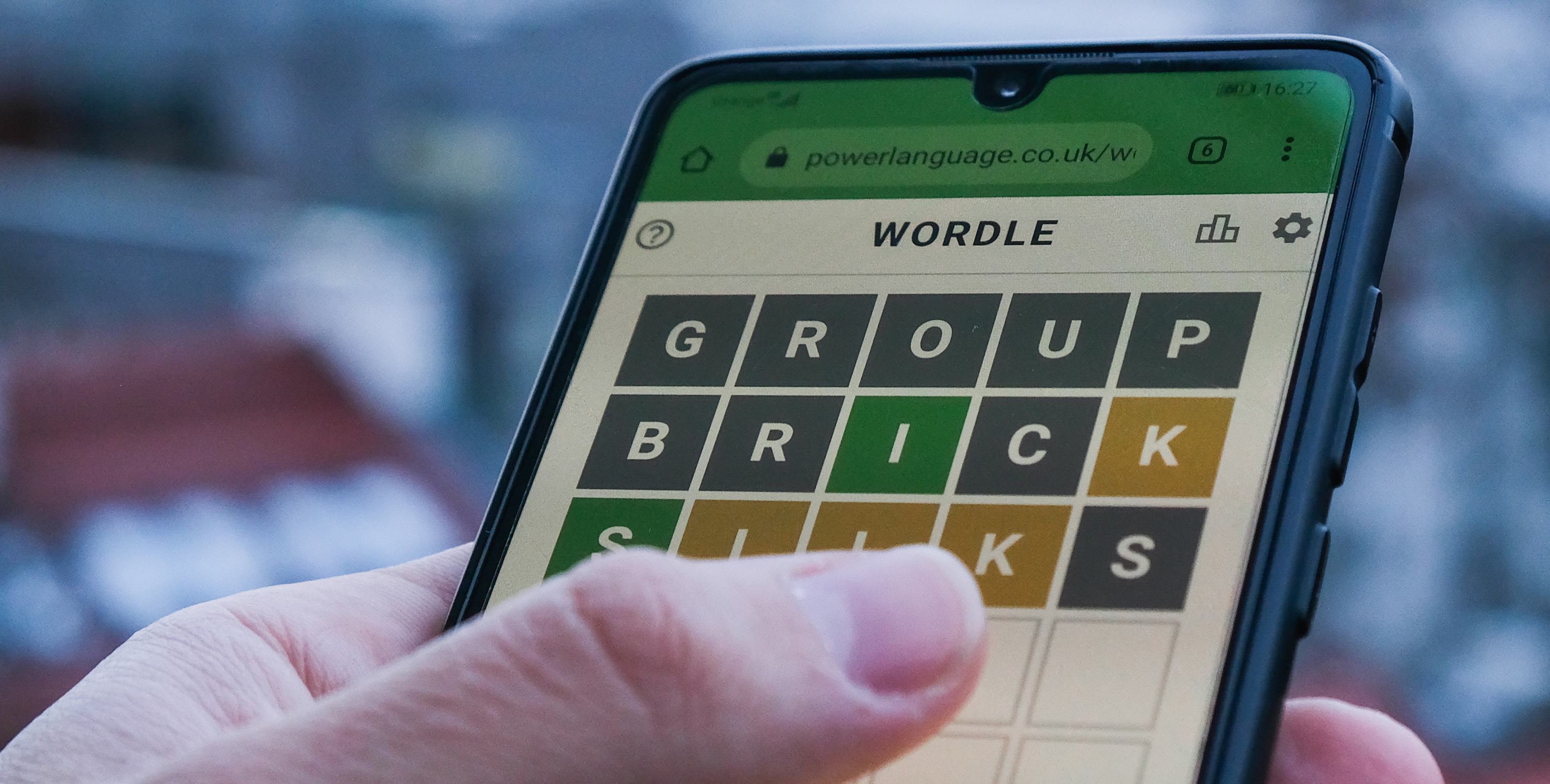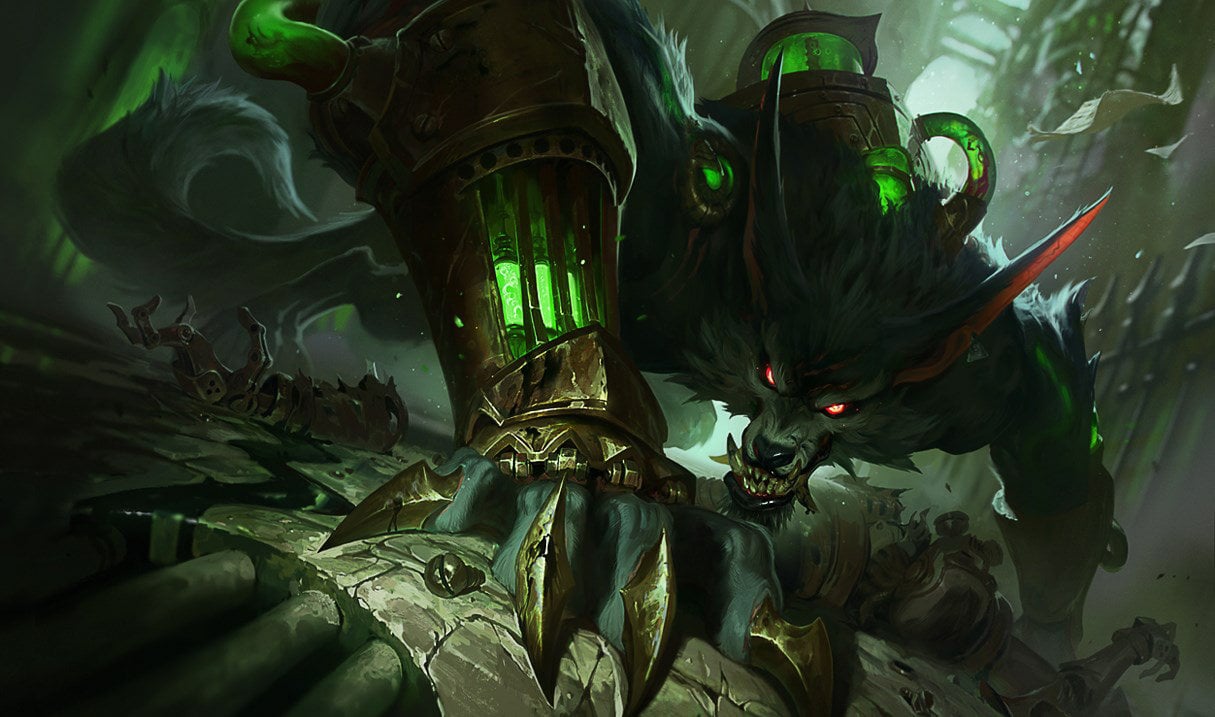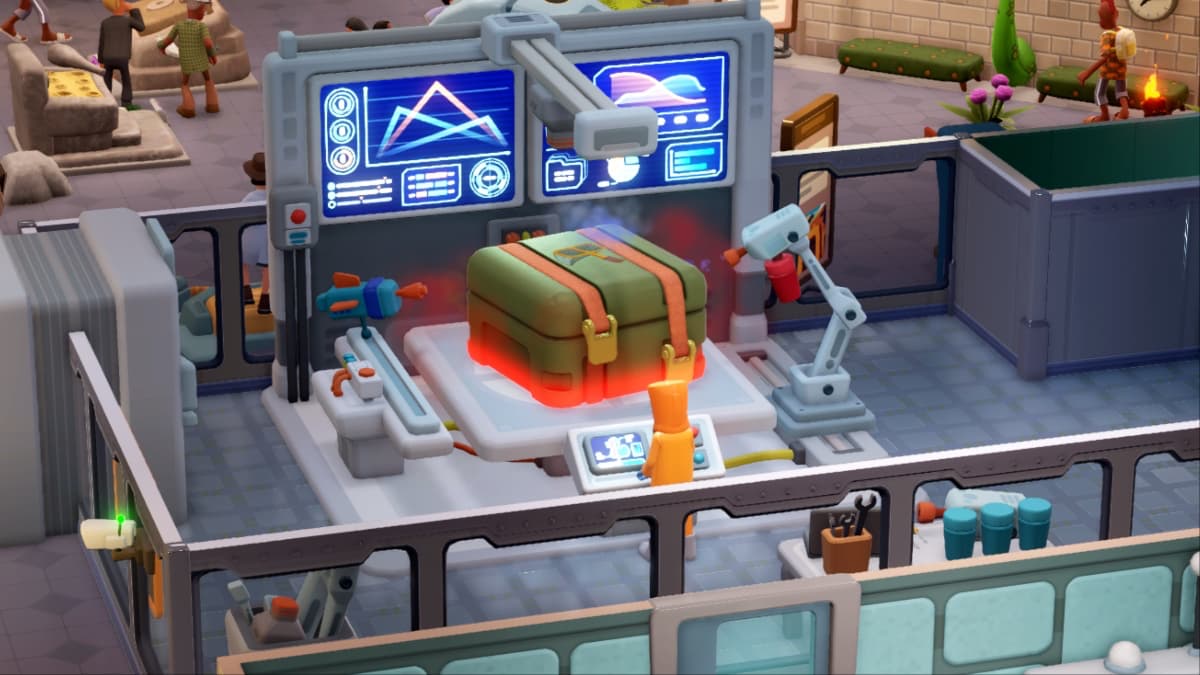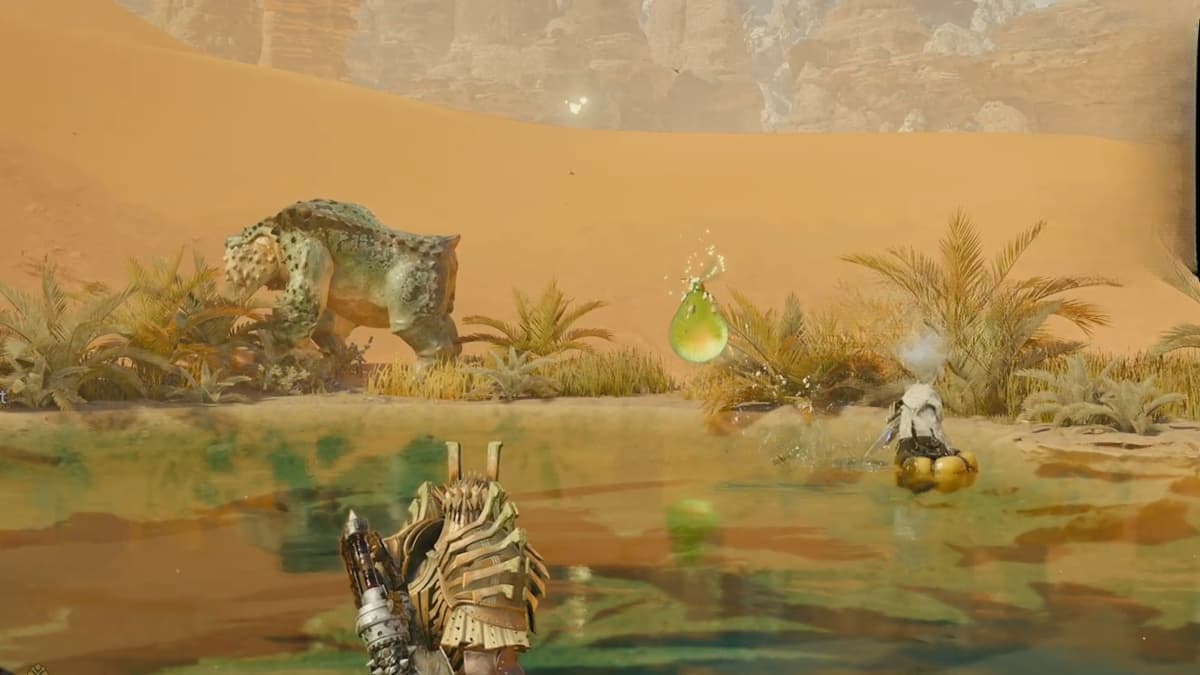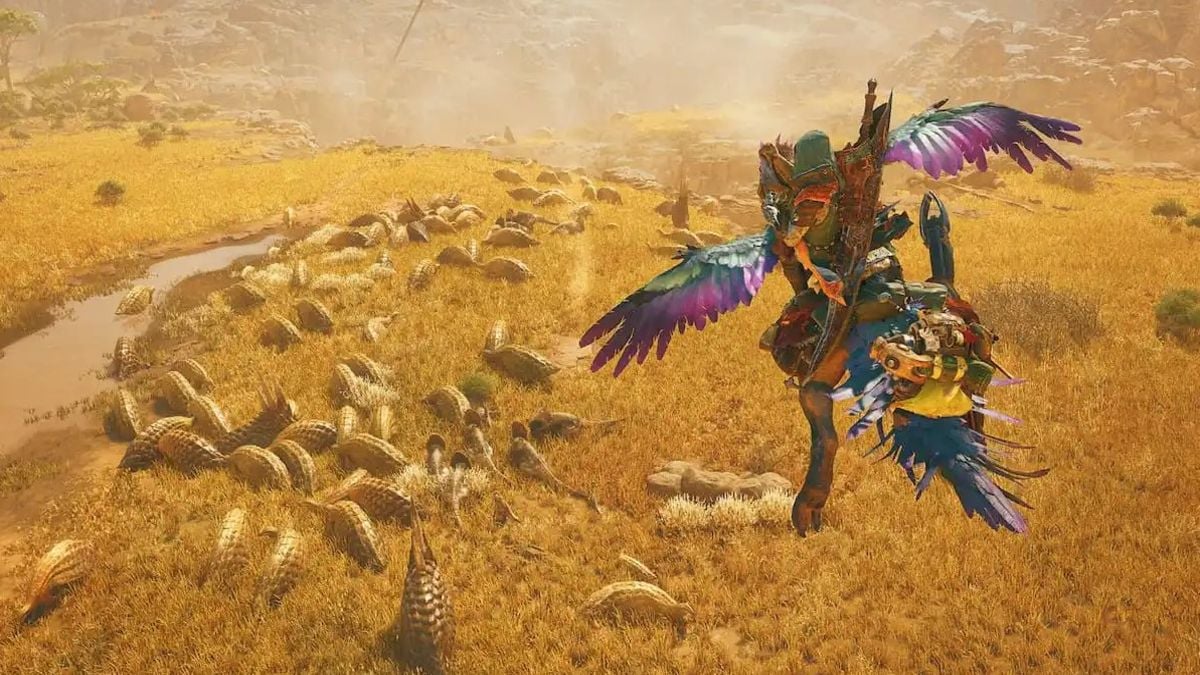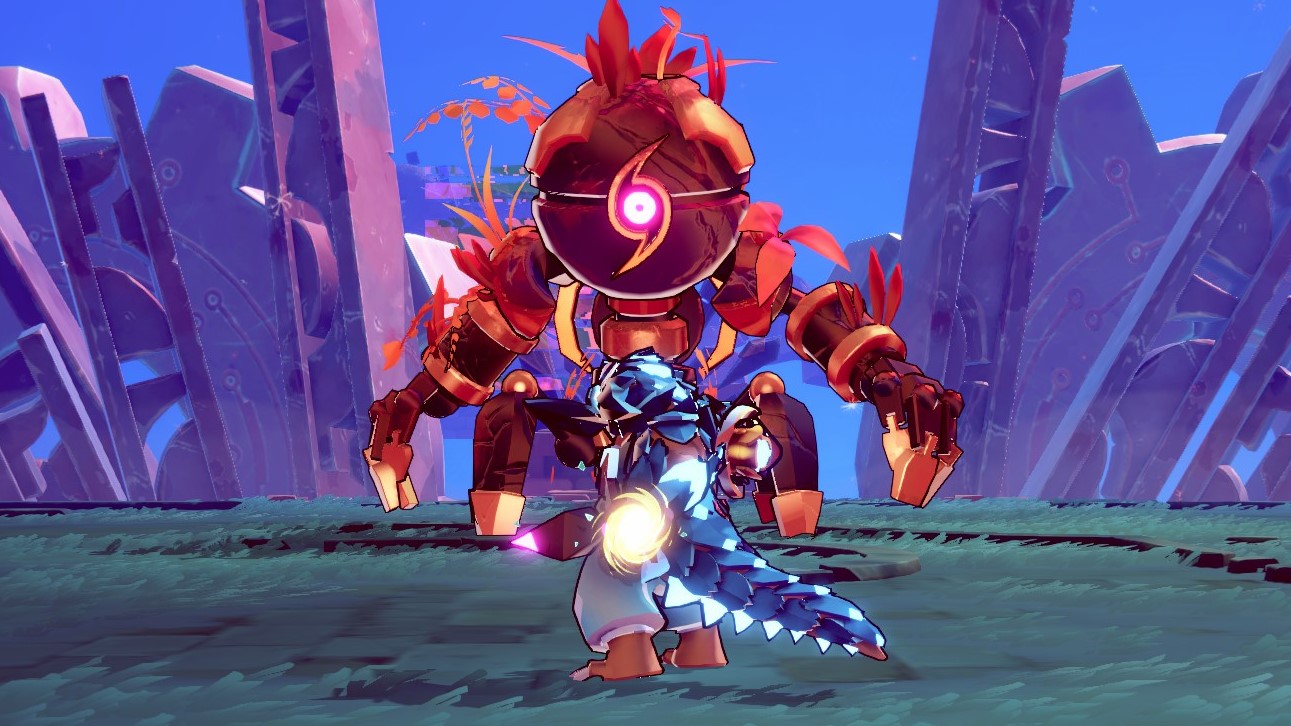
Isometric hack-and-slash Windblown sees Motion Twin dashing from strength to strength.
Everything in Windblown happens in the blink of an eye. You’re equipped with a lightning-quick dash, and it barely has a cooldown—one shortened further when going from platform to platform in its roguelike world of floating islands. Time only ever slows down for milliseconds when you dodge just as an enemy’s swing is about to connect. Downtime is in short supply and the pace begat an exhilarating flow state that had me thinking half a dozen inputs in advance.
My favorite expression of this is the game’s “alterattacks:” special combo moves that only activate after you’ve swung a few times with one weapon and then immediately switch to another. There’s a rhythm to it particular to each weapon, but the results are often explosive. I picked up these throwing knives that mark enemies with a stacking debuff I could detonate for big damage. However, the knives themselves don’t do a ton of damage, so I quickly learned I could risk my neck up close with a high-damage melee weapon, using the knives’ alterattack for an influx of stacks, seamlessly capitalizing on the strengths of both weapons in tandem.
On the flipside, I could poke a dangerous enemy from afar with the knives and then use a melee weapon’s alterattack to cleave anything that got too close. The difference between using these moves and just switching to your other weapon’s main combo is counted in milliseconds, but milliseconds tend to be the difference between securing a slew of new unlocks and a boot back to the beginning. And nailing the timings on these combos is damn satisfying for its own sake.
The purity of Windblown’s action is hard to overstate, which is no surprise given the pedigree. This is the studio behind Dead Cells at work, and as Chris Thursten pointed out in his review, Motion Twin’s twitchy brand of dodge-or-die brawling was top shelf in 2018; it’s only gotten better since. Windblown has a few similarities to its side-scrolling older sibling, like the multi-item loadouts and speedy combat, but it’s less rogue-vania and more like a multiplayer Hades someone left on fast-forward.
That is, if instead of the prince of the underworld, Zagreus was an axolotl with pants.
It’s a familiar setup at this point: you start with a meager home base and an unremarkable weapon, you get as far as you can before you inevitably die, then tackle it again with whatever buffs and treasures you unlock along the way. Chief among these are new weapons to experiment with and the memories of those who fell before you, which you can absorb for build-defining powers.
Windblown rewards the player handsomely for leveraging little synergies in the heat of the moment, and as you unlock more upgrades, items, and extra weapons, your damage output will quickly snowball out of control. In my experience so far, the most powerful buffs are almost always active and intentional; extra damage after dashing through someone, marks and debuffs to apply, tight windows of increased damage, that sort of thing.
I find in other roguelikes my most successful runs involve a build so busted and self-compounding that I don’t really have to think anymore. In Risk of Rain, sure, part of the fun is stacking so many ukuleles you can fry a whole map just by stepping foot in it. But here, the escalation of power came with an escalation of tension, since I had more to actively manage to make my kit sing.
Darting around in a sea of enemy telegraphs, hitting the timing on my crossbow’s rhythm-based attack, remembering to proc a backstab with my melee katars, using both my items whenever they’re available, executing enemies just as they reach low health to squeeze extra loot out of them—with every run you develop an increasingly involved dance based on your item choices, and clever buildcraft doesn’t deprive you of a second of that pulse-pounding action. Death is always only a few mistimed dodges away, and if you want to refill that health flask, you’ll have to forgo a shiny weapon or two.
Progression is pretty familiar, but it works well enough and it forces you to make choices, both long- and short-term. You’ll collect a few currencies as you explore the Vortex’s various sky islands—some unlock permanent buffs and pickups to appear in all future runs, while some secure fleeting advantages for that run only. As you progress you’ll find NPCs who you can ferry back to your home base, usually for new ways to buff your guy up for the next round of levels. In the build I played there was a nice blend of randomization and a fixed cadence to each level, so some planning ahead is possible if a particular boss is giving you trouble.
(Image credit: Motion Twin)
(Image credit: Motion Twin)
(Image credit: Motion Twin)
(Image credit: Motion Twin)
(Image credit: Motion Twin)
(Image credit: Motion Twin)
(Image credit: Motion Twin)
(Image credit: Motion Twin)
(Image credit: Motion Twin)
(Image credit: Motion Twin)
Another thing that’ll help, though, is the game’s most exciting feature: three-player co-op. If your friends are anything like mine, a good roguelike is the holy grail of game preference overlap, and the sheer variance on offer has the potential to keep Windblown in rotation for a long while. While I haven’t had a chance yet to test its multiplayer, it’s easy to piece together how brutal boss fights and buildcraft pair well with a shared Friday night and some mild inebriation. Windblown might not have Hades’ meticulous narrative or Dead Cells’ years of content, but the prospect of digging into that “just one more run” recursive dopamine injection with a group of friends has me excited already.
Nothing in Windblown is revolutionary. It’s a spin on a winning formula. And that’s just fine! With friends to rope into it and a bevy of items to toy with, I feel like there’s so much more to unlock and get better at using, and that’s the exact first impression I want from anything throwing around the word “rogue” as a prefix. Time will tell exactly how deep the well goes, but my first taste of Windblown was like a nice sangria. Bold and punchy, with enough under the surface that I’m eager to keep ladling—or maybe just dunk my whole head in the punch bowl.


